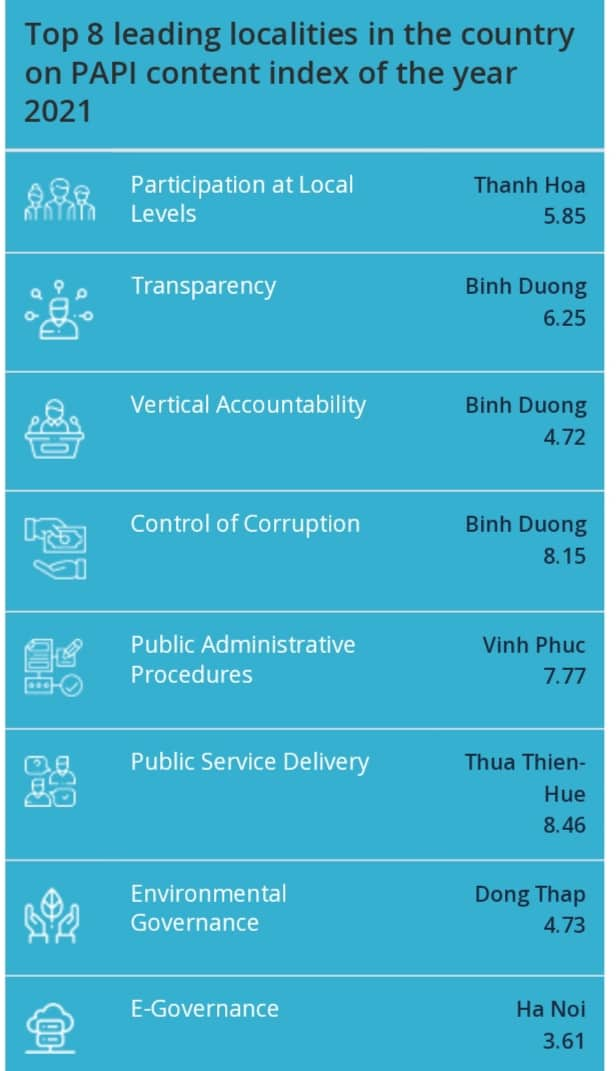Thua Thien-Hue leads in PAPI 2021 Rankings
VGP - The central province of Thua Thien-Hue took the lead among 63 localities in the Viet Nam Provincial Governance and Public Administration Performance Index (PAPI) 2021 Rankings with 48,095 points.

The information was announced at the launch of PAPI 2021 in Ha Noi on May 10.
It was followed by the southern province of Binh Duong and the north central province of Thanh Hoa with 47,178 points and 47,102 points, respectively.
The southern economic locomotive of Ho Chi Minh City got the lowest points among five centrally-managed cities due to the consequences of long-lasting social distancing due to COVID-19 outbreaks last year.
Meanwhile, the capital city of Ha Noi made breakthroughs in improving its points from 41,630 in 2020 to 44,447 in 2021.
PAPI is a flagship governance program initiated by the United Nations Development Programs in Viet Nam since 2009.
Over the years, PAPI has provided data and evidence that reflect eight key dimensions of government performance: Participation at Local Levels, Transparency in Local Decision-making, Vertical Accountability Towards Citizens, Control of Corruption in the Public Sector, Public Administrative Procedures, Public Service Delivery, Environmental Governance and E-Governance.
This year, the PAPI report records the voices of 15,833 respondents from across Viet Nam who shared their experiences of local government performance in governance, public administration and public service delivery.
Since its inception in 2009, PAPI has collected the views of 162,066 randomly selected citizens regarding government performance in governance, public administration and public service delivery, in various sectors and at all administration levels, based on citizens' interactions with local governments and public service providers.
The overall aim of PAPI is to improve the quality of government functions, the responsiveness, transparency, and accountability of public institutions, and ensure basic human rights in terms of freedom of expression, access to information and access to quality services.
With evidence collected from citizens as the end-users of government services, not only through PAPI surveys but also thematic research and policy advice, PAPI helps identify policy gaps that can inform policy-making agencies and motivate improvement in government performance.
